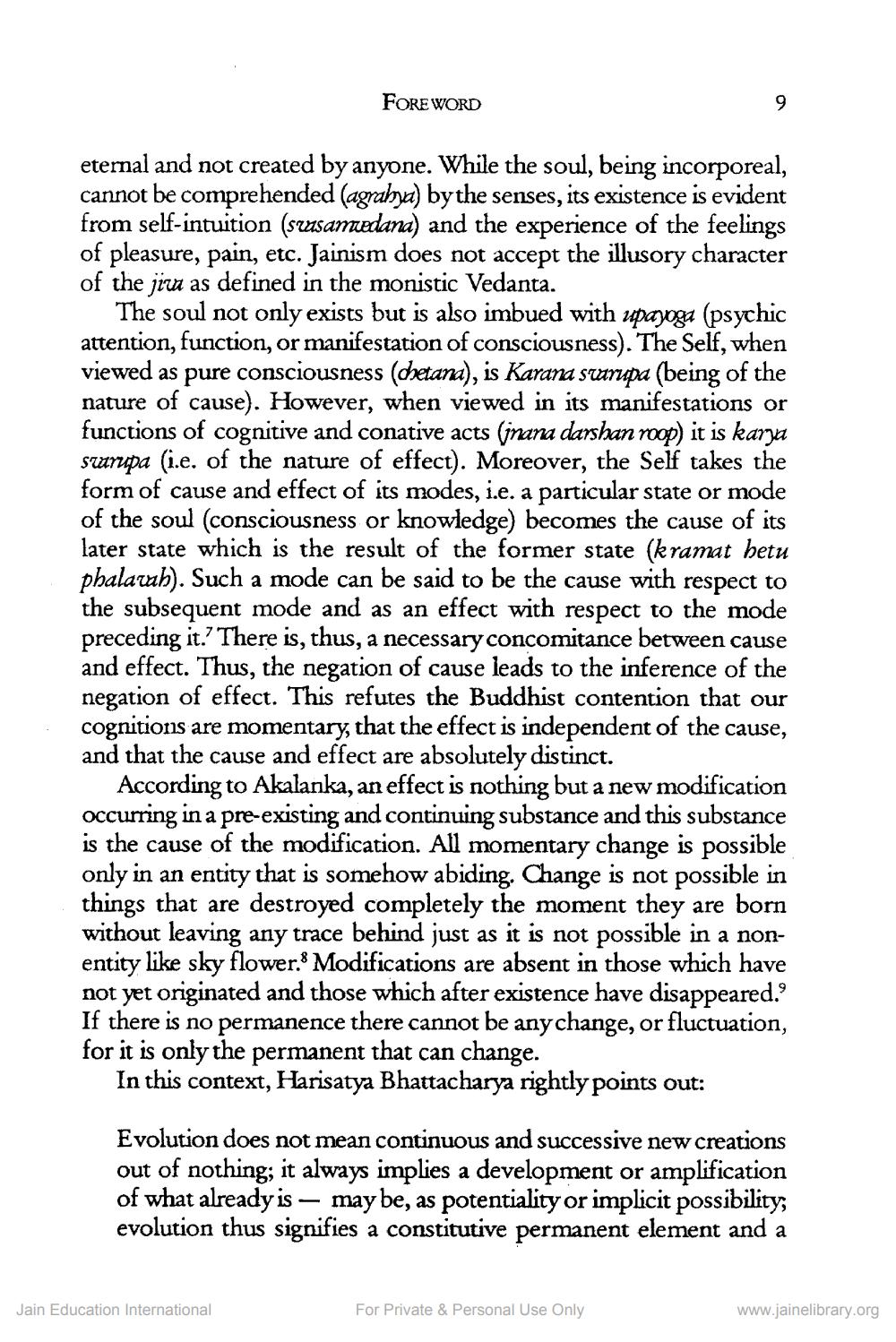________________
FORE WORD
eternal and not created by anyone. While the soul, being incorporeal, cannot be comprehended (agrahya) by the senses, its existence is evident from self-intuition (sasamaedana) and the experience of the feelings of pleasure, pain, etc. Jainism does not accept the illusory character of the jira as defined in the monistic Vedanta.
The soul not only exists but is also imbued with upayoga (psychic attention, function, or manifestation of consciousness). The Self, when viewed as pure consciousness (chetana), is Karana sarupa (being of the nature of cause). However, when viewed in its manifestations or functions of cognitive and conative acts (jnana darshan roop) it is karya starupa (i.e. of the nature of effect). Moreover, the Self takes the form of cause and effect of its modes, i.e. a particular state or mode of the soul (consciousness or knowledge) becomes the cause of its later state which is the result of the former state (kramat hetu phalavah). Such a mode can be said to be the cause with respect to the subsequent mode and as an effect with respect to the mode preceding it.' There is, thus, a necessary concomitance between cause and effect. Thus, the negation of cause leads to the inference of the negation of effect. This refutes the Buddhist contention that our cognitions are momentary, that the effect is independent of the cause, and that the cause and effect are absolutely distinct.
According to Akalanka, an effect is nothing but a new modification occurring in a pre-existing and continuing substance and this substance is the cause of the modification. All momentary change is possible only in an entity that is somehow abiding. Change is not possible in things that are destroyed completely the moment they are born without leaving any trace behind just as it is not possible in a nonentity like sky flower. Modifications are absent in those which have not yet originated and those which after existence have disappeared.? If there is no permanence there cannot be any change, or fluctuation, for it is only the permanent that can change.
In this context, Harisatya Bhattacharya rightly points out:
Jain Education International
9
Evolution does not mean continuous and successive new creations out of nothing; it always implies a development or amplification of what already is may be, as potentiality or implicit possibility, evolution thus signifies a constitutive permanent element and a
—
For Private & Personal Use Only
www.jainelibrary.org




